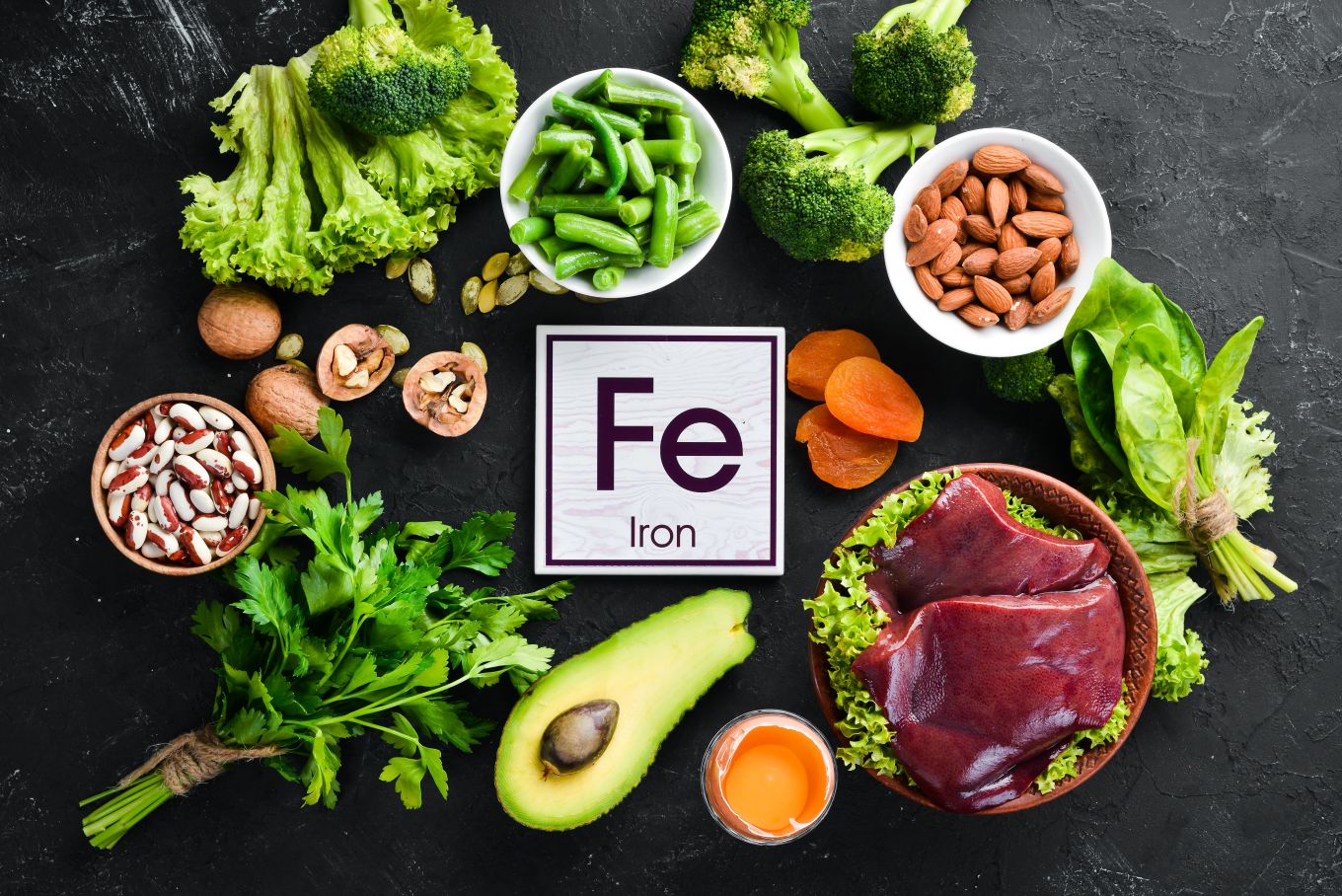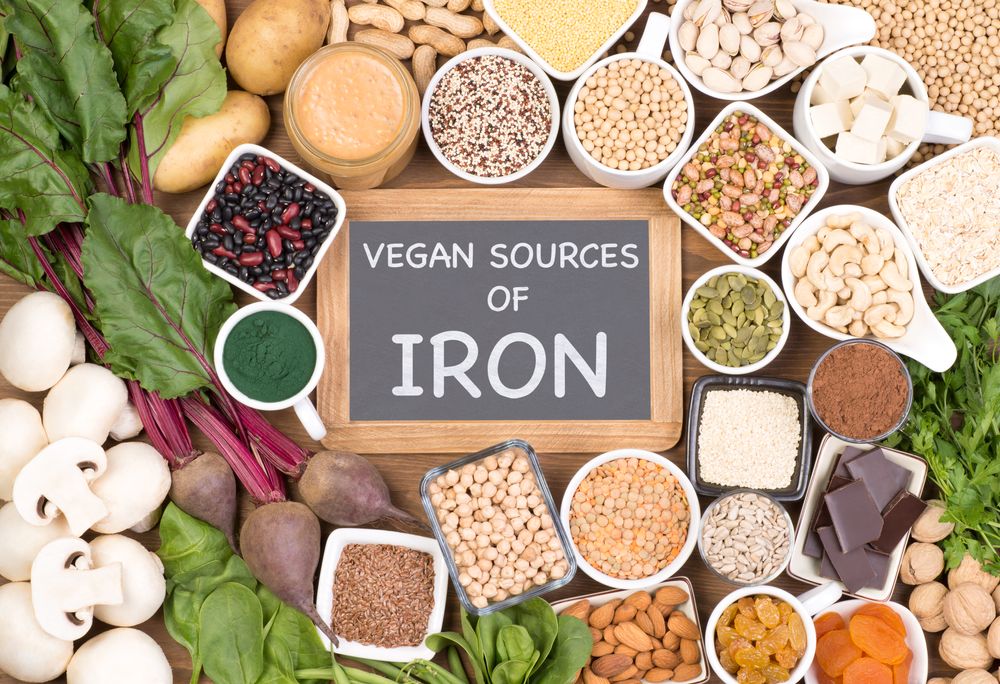
What is iron?
Iron is essential to manufacture hemoglobin , which enables red blood cells to transfer oxygen to the body’s tissues . It is widely available in foods including meat , fish , grains and vegetables and the average diet provides sufficient iron ( See What It Is ) .
Symptoms of iron deficiency: Iron deficiency (which is treatable with iron supplements) can cause symptoms such as fatigue, shortness of breath, dizziness, headache and pale skin. It is most common in menstruating women but also is commonly seen in children and pregnant women (few men are deficient in iron, and some may be at risk for iron excess ) .
Iron supplementation may reduce unexplained fatigue in women of child-bearing age who are not anemic but have ferritin levels in the lower end of normal range, inhibit dry cough associated with ACE inhibitors, and help to reduce symptoms of restless leg syndrome in people with low ferritin levels ( see What It Does ) .



Which form of iron is best ?
Iron comes in many chemical forms and formulations , including pills, liquids, and gummies . If taken with just water, all are about equally well-absorbed , so less expensive forms , such as ferrous sulfate , are fine . However , with larger doses, some people experience gastric discomfort and/or constipation . Taking with food may reduce discomfort, but also reduces absorption of certain forms of iron , such as ferrous sulfate , while other forms are better absorbed in the presence of food , such ferrous bisglycinate and ferrous glycinate . Note that some supplements include vitamin C to increase iron absorption but this is unlikely have a significant effect, and there is concern that slow- or timed-release products may lead to reduced absorption of iron (see Forms of Iron and Avoiding Stomach Upset ) .
Best iron supplements : One product was Not Approved for failing to disintegrate within the required time ( See What CL Found ) . Among the products that passed testing and were ” Approved ” for their quality , CL selected its Top Picks based on quality, cost, dose , and absorption .
How much iron to take, safety and side effects: For correcting iron-deficiency anemia in adults: 100 mg to 200 mg daily, divided into two or three separate doses; this should be done only under physician supervision. When used as a treatment for other conditions, doses between 40 mg and 250 mg have been used. Unless treating a deficiency or specific condition, limit your daily intake of iron from supplements and fortified foods to no more than 45 mg to avoid side-effects and the harmful effects of excessive iron . Iron can also interfere with certain drugs. (See How much to take? and Concerns and Cautions) .
Don’t take iron with tea, as well as other minerals , as this may decrease iron absorption ( see what to avoid when taking ) .














Fefol Pregnancy
Pregnancy comes with a lot of changes for the expectant mother, one of them being increased iron needs. Pregnant women need large quantities of iron to help build the placenta and the increased blood volume that comes with gestation. Since red blood cells are responsible for bringing oxygen to all of the cells and tissues, extra iron is needed to make all the hemoglobin required . Fefol Pregnancy also contains Vitamin B12, Vitamin D3 and Vitamin C which helps support healthy pregnancy. With a high dose of Iodine and Folic Acid, Fefol Pregnancy supports healthy foetal central nervous system and brain development . Folic Acid is important to help prevent neural tube defects such as spina bifida or anencephaly when trying to conceive and in the first trimester .

Fefol Vitamins
Multivitamin with iron is a supplement that contains different vitamins , minerals, and other nutritional substances, including iron . Iron is a mineral that’s normally found in foods like red meat . In your body, iron is part of hemoglobin — a protein that carries oxygen from the lungs throughout the body and helps muscles store and use oxygen . Multivitamin with iron is taken to provide vitamins and iron that you don’t get through diet alone. It’s used to treat a vitamin or iron deficiency caused by different conditions, including poor nutrition , pregnancy , blood loss, digestive disorders, and other health issues . This supplement is available as both an over-the-counter (OTC) and prescripti on medicine . OTC products have lower amounts of iron than prescription forms .

Fefol Vitamins
Multivitamin with iron is a supplement that contains different vitamins , minerals, and other nutritional substances, including iron . Iron is a mineral that’s normally found in foods like red meat . In your body, iron is part of hemoglobin — a protein that carries oxygen from the lungs throughout the body and helps muscles store and use oxygen . Multivitamin with iron is taken to provide vitamins and iron that you don’t get through diet alone. It’s used to treat a vitamin or iron deficiency caused by different conditions, including poor nutrition , pregnancy , blood loss, digestive disorders, and other health issues . This supplement is available as both an over-the-counter (OTC) and prescripti on medicine . OTC products have lower amounts of iron than prescription forms .

Fefol Gyne
Iron deficiency is known to be among the commonest nutritional deficiency states worldwide, with physical sequelae and symptoms depending on duration and severity . Although countries with chronic malnutrition have a high prevalence of iron -deficiency anemia (50%-80%) , iron-deficiency states without anemia are frequently found in countries with normal nutrition ( prevalence up to 20%) . 1 Successful iron therapy depends, on one hand, on correct diagnosis and, on the other , on the choice of effective iron formulations and treatment of the cause . Women naturally have a much higher prevalence of iron deficiency than do men. Women with regular periods have a prevalence of iron deficiency that is about 10 times higher than do men of the same age . Additionally , it can be shown that among blood donors it is nearly always women who have absent iron stores. The reason for this is regular blood or iron loss during menstruation with concomitant insufficient intake .

Fefol Plus
Vegetarians and vegans often have greater difficulty meeting the body’s iron needs than non-vegetarians because the iron in plant foods is not absorbed as efficiently as the iron in meat. Because of the body’s inability to absorb plant-based iron effectively, vegetarians have a higher incidence of iron deficiency and iron deficiency anemia than meat-eaters. Iron is an important nutrient for vegans to be aware of as iron deficiency is one of the most common nutrient deficiencies world-wide. Iron deficiency is an extremely common nutrition problem for both vegans and non-vegans. For this reason, many doctors recommend iron supplementation for vegetarians – especially athletes and females (both are naturally at a higher risk for iron deficiency). . When you’re not consuming red meat in your diet, you’re avoiding one of the most iron-rich foods there is, so taking a regular iron vitamin is a great way to replenish your iron levels and avoid iron deficiency. For athletes, iron is also an essential mineral that helps carry oxygen from the lungs to the rest of the body. We need to transport enough oxygen to enable our muscles to function. Iron is very important for athletes because of the need to work hard on their muscles during training and competition. The body receives iron through the food we eat. Lack of iron-rich foods in the diet can lead to iron deficiency anemia. Symptoms of iron deficiency anemia include fatigue, pale skin, decreased exercise capacity, and recurrent illness. Iron is a functional component of oxygen transport and energy production in humans and therefore is a critically important micronutrient for sport and exercise performance. Athletes, particularly female athletes participating in endurance sport, are at increased risk of compromised iron status due to heightened iron losses through menstruation and exercise-induced mechanisms associated with endurance activity .

